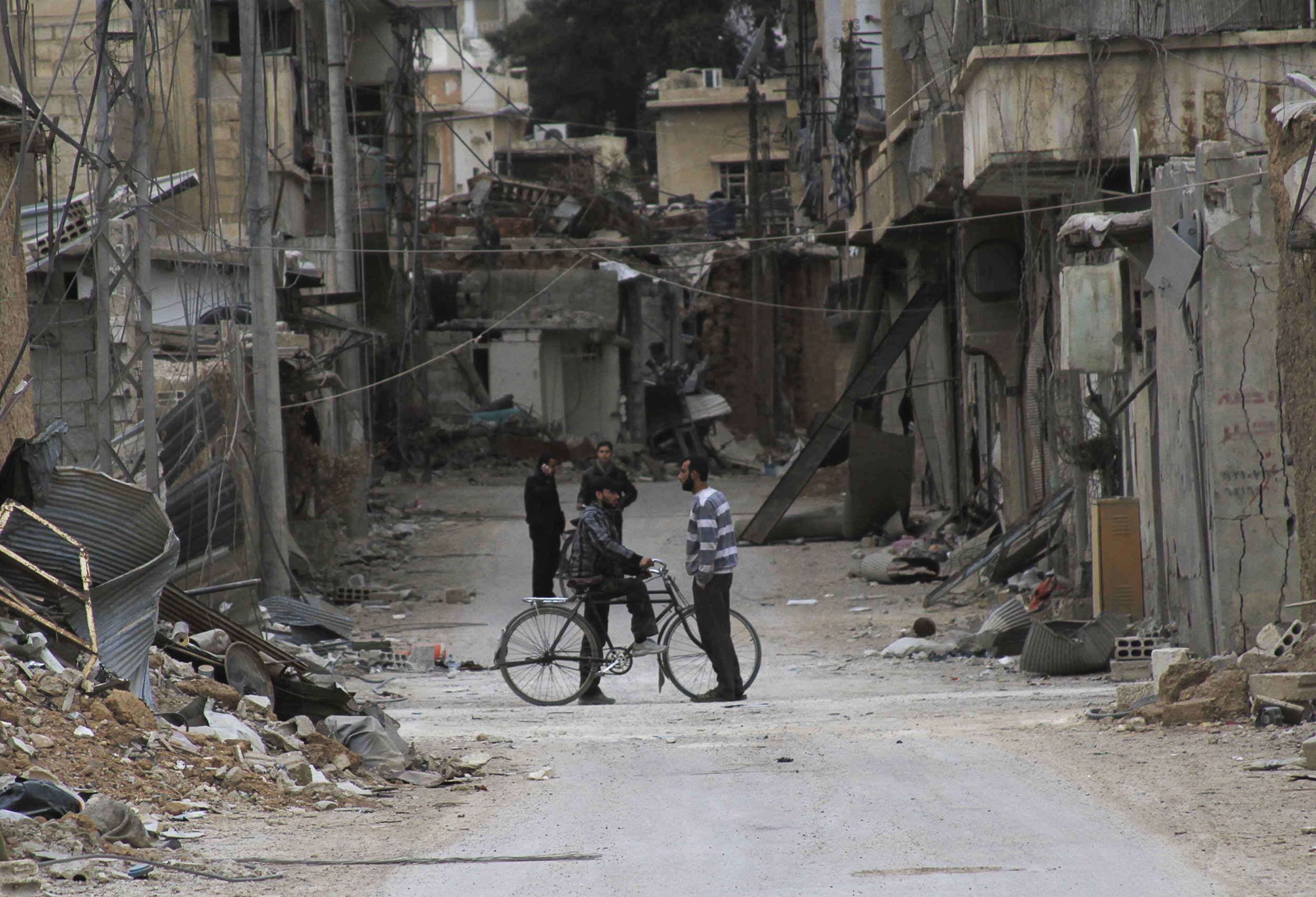
The only remaining hospital in Daraya was hit with barrel bombs filled with napalm on Friday morning after days of attacks on the southern Syrian city, activists say.
Barrel bombs allegedly full of napalm were dropped on the hospital at around 1 a.m., putting it completely out of service, according to a statement from Major Issam al-Reis, spokesman for the Free Syrian Army's Southern Front. Around eight barrel bombs were dropped, burning civilian homes in the suburb, located around seven miles southwest of Damascus, he said. The Free Syrian Army is an opposition group fighting forces loyal to the government of Syrian President Bashar al-Assad.
The Syria Campaign, an advocacy group focusing on civilian protection, said the bomb contained a "napalm-like" substance. (Newsweek was not able to independently verify that napalm was included in the barrel bombs.) The Assad government has repeatedly denied using chemical weapons in the past. A report from Human Rights Watch published earlier this week said the joint Syrian-Russian military has been using incendiary weapons, "which burn their victims and start fires, in civilian areas of Syria in violation of international law."
Daraya has been under siege since November 2012, and the last humanitarian aid convoy was delivered in June. There is widespread malnutrition in the city, and sustained attacks have burned and destroyed fields that residents relied on for food, according to the Syria Campaign.
The Daraya Local Council, which provides updates from the city, published videos it said show the aftermath of the attack on the hospital on Friday morning. Multiple fires, large and small, flicker in the dark amid the rubble of buildings. The Syria Campaign published another video earlier this week that it said shows doctors treating wounds in the now-destroyed Daraya field hospital using the light of their mobile phones.
No one died in the Friday morning attack, but the Syrian Civil Defense rescued 25 people from the hospital, Reis said. All the medical equipment inside the hospital was destroyed, and the bombing has left 8,000 people without medical care, the Syria Campaign said. Ibrahim Kholany, an activist with the Daraya Local Council, said the sole remaining field hospital was treating routine medical cases, newborns, malnutrition cases and those with war injuries.
The Free Syrian Army says that "napalm is now being increasingly used on Daraya" and that more than 40 napalm bombs have been dropped over the city this week. On Monday, the Daraya Local Council said napalm bombs were being dropped for the second straight day, resulting in fires in civilian homes.
"Dropping incendiary weapons—or any other indiscriminate weapon—on civilian areas is a flagrant violation of international law," Widney Brown, director of programs at Physicians for Human Rights, said in statement emailed to Newsweek. "Not only do these weapons cause extensive damage, their effects on the human body are horrific, leading to chemical burns, excruciating pain, and other gruesome injuries for anyone caught in such an assault." The U.S.-based group said it was not able to confirm the type of incendiary weapons that were used.
"Such burns require intensive, specialized treatment which doctors will not be able to offer from hospitals bombed out by Syrian government forces and their Russian allies," said Brown.
The news from Daraya comes after photos of a bloodied and dusty Omran Daqneesh, a 5-year-old boy who survived an airstrike in Aleppo, went viral and were published on the front of newspapers around the world.
On Friday, Doctors Without Borders reported that two Syrian girls—one aged 8 months, the other 5—were among five bodies recovered from the Mediterranean Sea after a small wooden boat capsized off the coast of Libya.
Uncommon Knowledge
Newsweek is committed to challenging conventional wisdom and finding connections in the search for common ground.
Newsweek is committed to challenging conventional wisdom and finding connections in the search for common ground.
About the writer
Before joining Newsweek, Lucy Westcott was an editorial fellow at The Wire. Previously a United Nations correspondent for the Inter ... Read more
To read how Newsweek uses AI as a newsroom tool, Click here.








